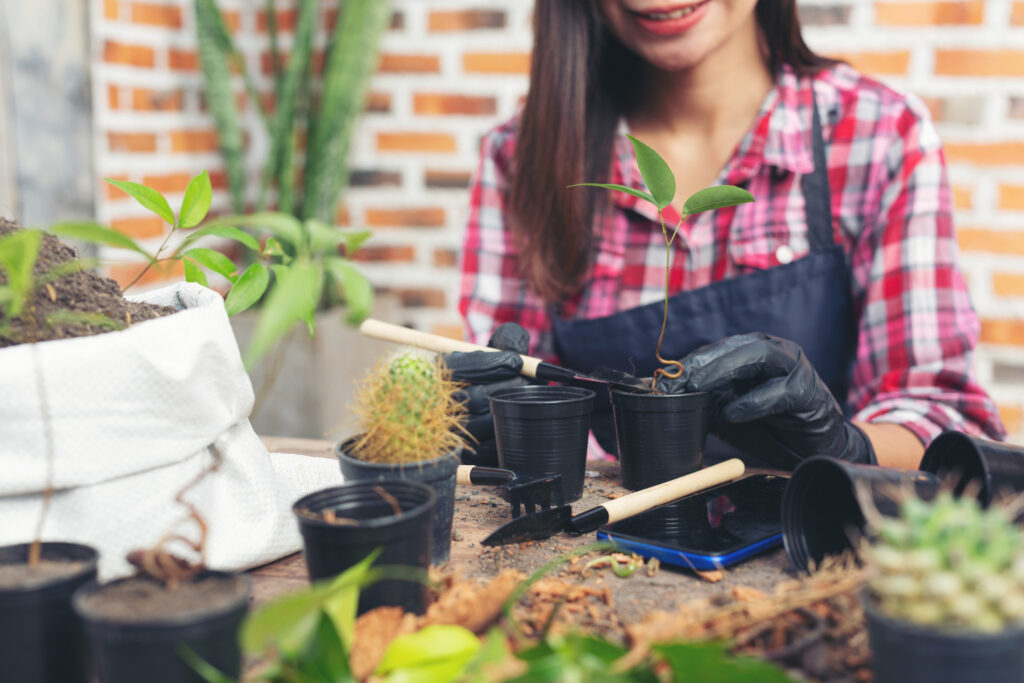Introduction: Cultivating Health from the ground up
In the ever-changing world of organic gardening, natural methods are a symbol of sustainability and sustainable development, helping to create harmony between humans and the natural world. Through embracing organic gardening methods and practices, we not only provide our bodies with nutritious food but also ensure the well-being of the soil and water as well as the ecosystems that support the life of Earth. In this article, we’ll examine the art and science behind organic gardening. It will help you to create a garden that flourishes within the natural world while also promoting well-being, health, and sustainability.

1. Building Healthy Soils
Healthy soil is the basis of an organic garden that is successful. Start by enriching your soil with organic matter like manure, compost, and cover crops that increase soil structure fertility, fertility, and retention. Avoid using synthetic pesticides and fertilizers, since they can alter your delicate equilibrium of the soil’s ecosystem and damage beneficial microorganisms.
2. Embracing Biodiversity
The diverse ecosystems of the world are resilient. In your garden, you can encourage biodiversity through the planting of a range of species of flowers, crops, and native plants that draw beneficial insects, birds along other species of wildlife. It is important to rotate your crops each year to prevent soil erosion and limit the accumulation of diseases and pests. Utilize companion planting strategies to establish symbiotic relationships among plants that encourage the growth of your plants, deter pests, and encourage pollination.
3. Conserving Water
It is a scarce resource, particularly in dry areas or in drought-prone. Conserve water in your garden by utilizing mulch to hold soil moisture, constructing rain barrels and cisterns to collect rainwater to be used for irrigation, and establishing drought-tolerant species that can adapt to the local climate. Avoid overwatering because it could lead to the soil becoming waterlogged and root rot and you should also water your plants well but only occasionally to encourage roots to grow deep.
4. Controlling Pests and Diseases Naturally
In a natural garden, the management of pests and diseases is based on prevention and natural methods for controlling instead of chemical intervention. Inviting beneficial insects like ladybugs, lacewings, and predatory wasps to manage the population of pests by establishing insect-friendly plants as well as providing shelter and habitat. Remove pests by hand, such as caterpillars or beetles, and put up physical barriers like row covers or nets to protect plants that are vulnerable to damage.
5. Saving Seeds and Helping Pollinators
Seed saving is a long-standing practice that protects the heirloom varieties and encourages diversification of genetics in gardens. Save seeds of open-pollinated plants that have adapted to the local climate and then share them with other gardeners to continue nature’s cycle. Help pollinators like butterflies, bees, and hummingbirds by providing habitats for food sources, habitats, and nesting places Avoid applying neonicotinoid pesticides to affect pollinator populations.
6. Composting and Recycling
Eliminating waste is the main goal for organic gardeners. compost kitchen waste, garden debris, and even plant trimmings to create nutritious soil amendments to your garden. Utilize recycled materials whenever you can to construct garden structures, such as raised beds trellises, and garden stakes, and reduce the amount of waste you generate by recycling containers tools, and other resources when you garden.
Conclusion: Creating a Greener Future
Organic gardening is not simply a collection of methods it’s a system of thought that acknowledges the interconnectedness between all living things and aims to build a more sustainable and sustainable world. By adopting organic principles in the garden you can not only boost health and vitality for your own family and community but can also improve the health of the entire planet. So get your hands in the soil so that you can plant your seeds with care and be part of the growing number of gardeners who are creating an environment that is healthier for the generations to come.
Happy gardening hope your backyard becomes a healthy garden that is full of beauty, health, and sustainability!
Checkout: Top Free Home Gardening Books